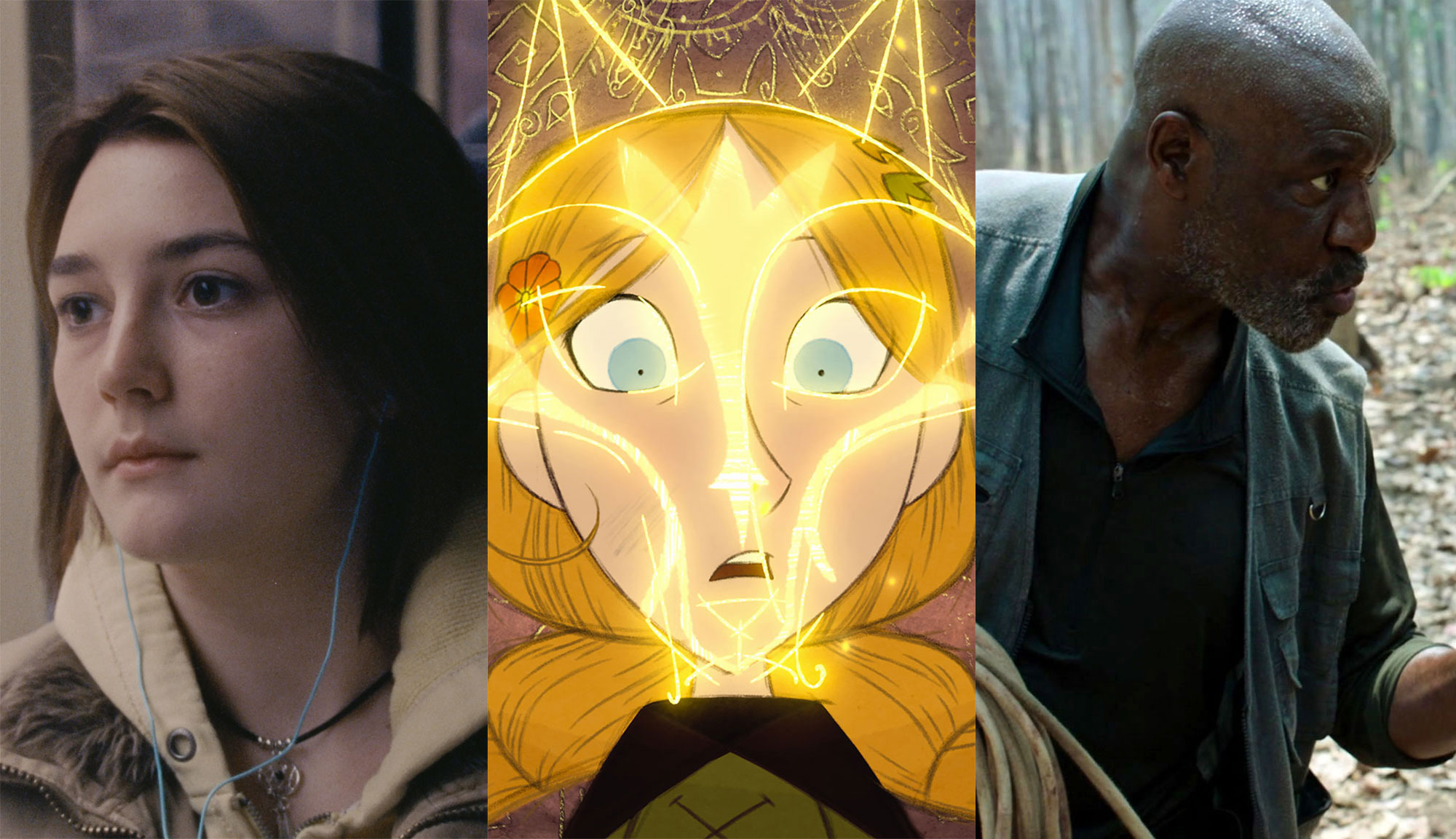
Tuesday, February 25. That’s the last time I set foot in a movie theater, specifically to see Leigh Whannell’s excellent reboot of “The Invisible Man.” It’s safe to say that a lot has happened since then.
It’s unlikely anyone is going to remember 2020 for the movies that came out this year. They may remember it for Warner Bros.’ short-sighted attempt to push “Tenet” into theaters in the fall and the reverberations across the industry that its failures caused. They may also remember it for “No Time to Die” moving its spring release date — the canary in a coal mine that led to nearly the entire slate of major releases slipping into 2021 or limping onto VOD and streaming platforms. But don’t let those stories control the narrative because there were plenty of extremely good films released this year, even if the majority of them did not see a traditional theater release in the U.S. Here are the ten best of them — an eclectic bunch for sure, but one focused on the power and empathy capable for the art form regardless of the circumstances of its release.
10. “THE PAINTER AND THE THIEF“
I would certainly not be alone in my belief that I watch and write about movies as much as I do because of the medium’s keen ability to get to the center of the humanity of the art form. This year, more than most, that need for humanity has been even more important as we’ve been locked away in our houses, deprived of the communal experience of seeing films in a darkened room together. Few movies home in on that specific understanding quite like “The Painter and the Thief,” Benjamin Ree’s documentary about Barbora, an artist whose paintings are stolen, and Karl, one of the thieves who committed the act. Barbora decides early on not to judge him on the content of his actions but on the merits of his personhood. The resulting experience is one where the emotion of the scenes is enough to overwhelm even the hardest of hearts. It’s so easy to assume the worst in criminals, but Ree and Barbora are far more interested in the man behind the act. It is indeed filmmaking at its most human and empathetic, and one of the standout experiences of a 2020 spent at home to remind us of what we have missed.

9. “NOMADLAND“
I didn’t entirely vibe with “The Rider,” Chloe Zhao’s breakout feature from three years ago, so I felt a little bit of consternation going into “Nomadland.” “The Rider” was marked by its use of non-professional actors in both leading and supporting roles, and the same is true for most of the cast of “Nomadland,” with the key difference of Frances McDormand starring in the lead role. The result is a film that feels far more natural and assured despite having more famous actors. Like “The Rider,” “Nomadland” focuses on a person who has lost everything that makes them who they are. McDormand’s character was once a thriving member of society, but the Great Recession has laid her low. She spends her time doing short-term seasonal jobs at a local Amazon facility and living in a van as she travels through the western United States. The characters she meets along the way are a mélange of wild personalities, offering kindness and a helping hand whenever she needs it because they’ve been where she is before. “Nomadland” is a movie that’s low on stakes but high on charm, filled with astonishing cinematography from Joshua James Richards. The jagged mountains, scorched terrain and dusty abandoned lots of the American West can be soul-crushingly depressing, but Zhao finds comfort in the quiet dignity of her characters.

8. “DICK JOHNSON IS DEAD“
Longtime cinematographer Kirsten Johnson is turning into quite the filmmaker. 2016’s “Cameraperson,” which she cobbled together with unused footage of decades of work behind the camera, confirmed her incisive eye for emergent storytelling, showing how a lifetime behind the camera shapes a person and how they perceive the world around them. Her follow-up feature, the utterly delightful “Dick Johnson Is Dead,” takes a far more fantastical approach as she stages a series of tremendous death scenes for her aging father slowly succumbing to dementia. Dick is an engaging presence, showing the spark of life that could create such an artistic daughter, and despite almost exclusively working in the documentary space, it’s clear that Kirsten has picked up a trick or two from the glitz, glamor and movie magic of narrative fiction. The staged nature of the film blurs the line between fact and fiction, making it so that it’s not entirely clear how much of the movie is simply captured in the moment and how much is rehearsed. The result isn’t necessarily an “F for Fake”-style put-on but more of a thoroughly unconventional portrait of a man who has left an indelible mark on his daughter. It’s both a love letter and a living eulogy, fiercely personal and insular yet thoroughly relatable in the humanity that seeps from its every pore. Very few people who watch “Dick Johnson Is Dead” will have known anything about the man before pressing play, but there’s no denying that he will live on in the memories of many more people than he could have imagined.

7. “POSSESSOR“
Brandon Cronenberg has quite a legacy to live up to as the son of legendary body horror aficionado David Cronenberg. For his second feature, “Possessor,” the younger Cronenberg fully embraces his family’s legacy by spinning a particularly nasty and gory tale. With an innovative premise that could best be described as a horror version of “Being John Malkovich,” the film follows a shadowy corporation that utilizes cutting-edge technology to inhabit the minds and bodies of unsuspecting victims in order to carry out corporate espionage in the goriest way possible. It’s a pretty neat conceit that plays relatively close to the vest for its first act, but when the film’s second victim (played by the always excellent Christopher Abbott) takes center stage, “Possessor” turns into a war of wills within his very mind. Cronenberg excels at bringing the surrealism of the experience to life with inventive visual motifs and shockingly memorable special effects work, tying it all up with a killer final sequence that goes in directions you’ll never see coming. Abbott is particularly impressive here, having to outwardly project the concept that he’s fighting for control of his own body and mind with a sinister actor, clearly playing his normal self and the one controlled by Andrea Riseborough as two completely different people. “Possessor” is both a wild ride and a cerebral workout, so satisfying in its execution that it’s impossible to look away once it’s got you by the neck.

6. “SOUND OF METAL“
As a drummer who sometimes experiences thankfully fleeting bouts of tinnitus, it’s safe to say that a movie like “Sound of Metal” hit pretty close to home. An undeniably humanistic look at both the experience of deafness and the community that can be formed around it, the film is at its best when lead actor Riz Ahmed is front and center, coping with the fact that the activity he used to fight and defeat his addiction to heroin has been taken from him in the cruelest way possible. Your average movie would likely fall into a rather rote exploration of a man fighting his inner demons and losing, but “Sound of Metal” has very different expectations. When his NA sponsor tells his girlfriend to bring him to a commune run by Joe (Paul Raci) to learn how to live with his new condition, Ahmed proceeds to work his way through the five stages of grief in his own indelible way. His character sees this as a temporary affliction — one that can be saved by getting cochlear implants that would allow him to return to something resembling normalcy. And while he learns and matures under Joe’s tutelage, he still sees himself as a temporary visitor. It’s that flaw in his mindset that leads to the film’s devastating third act turn — one realized so expertly by Ahmed in a career-best performance. Combine that with the film’s profound use of sound design to put its audience within the head and ears of someone rapidly losing their hearing, and the result is one of the most memorable films of the year.
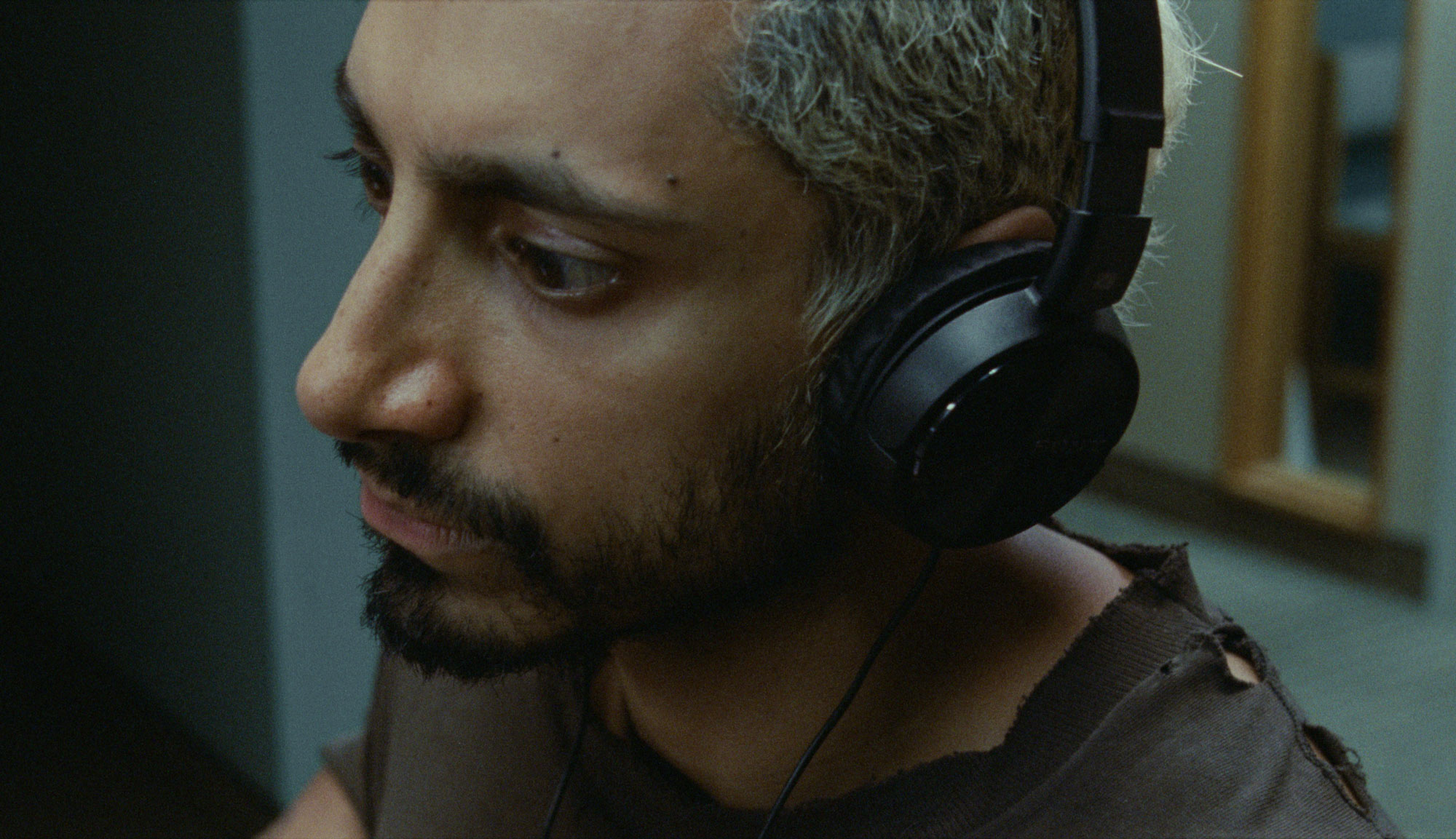
5. “NEVER RARELY SOMETIMES ALWAYS“
Eliza Hittman’s fiercely personal chronicle of a young girl’s trials and tribulations as she travels to New York to get an abortion that would not be a possibility in her conservative Pennsylvania hometown is the sort of quietly devastating movie that never lets go once it has you in its thrall. Led by preternaturally talented newcomer Sidney Flanigan, the film shows a deep and abiding understanding of the difficulties a young woman faces when fighting for her own rights, decisions and body. That’s not to say that this is a “Citizen Ruth”-style revolutionary film — far from it. It’s simply the story of a girl doing what she can to have the freedom to do what she thinks is right. But the world she finds herself thrown into is fraught with the sort of danger a naive small-town girl is not particularly well-equipped to handle, especially one with only a cousin to rely on and barely any money to her name. There are times when “Never Rarely Sometimes Always” feels like a horror film — where certain doom awaits our protagonist around every corner. And it’s certainly a harrowing experience, especially as Autumn discovers that getting the procedure is far more of a bureaucratic nightmare than she initially thought. This is an exceptionally tough film to watch in a lot of ways, especially during the scene that gives the film its name, but the team of Hittman and Flanigan are so wonderfully on point with the tone and delivery of the film that the pain and the sorrow at its core are undeniably worth the experience. Hittman continues to be a rising female voice in the industry, and if this film is any indication, Flanigan could be the star of her generation.
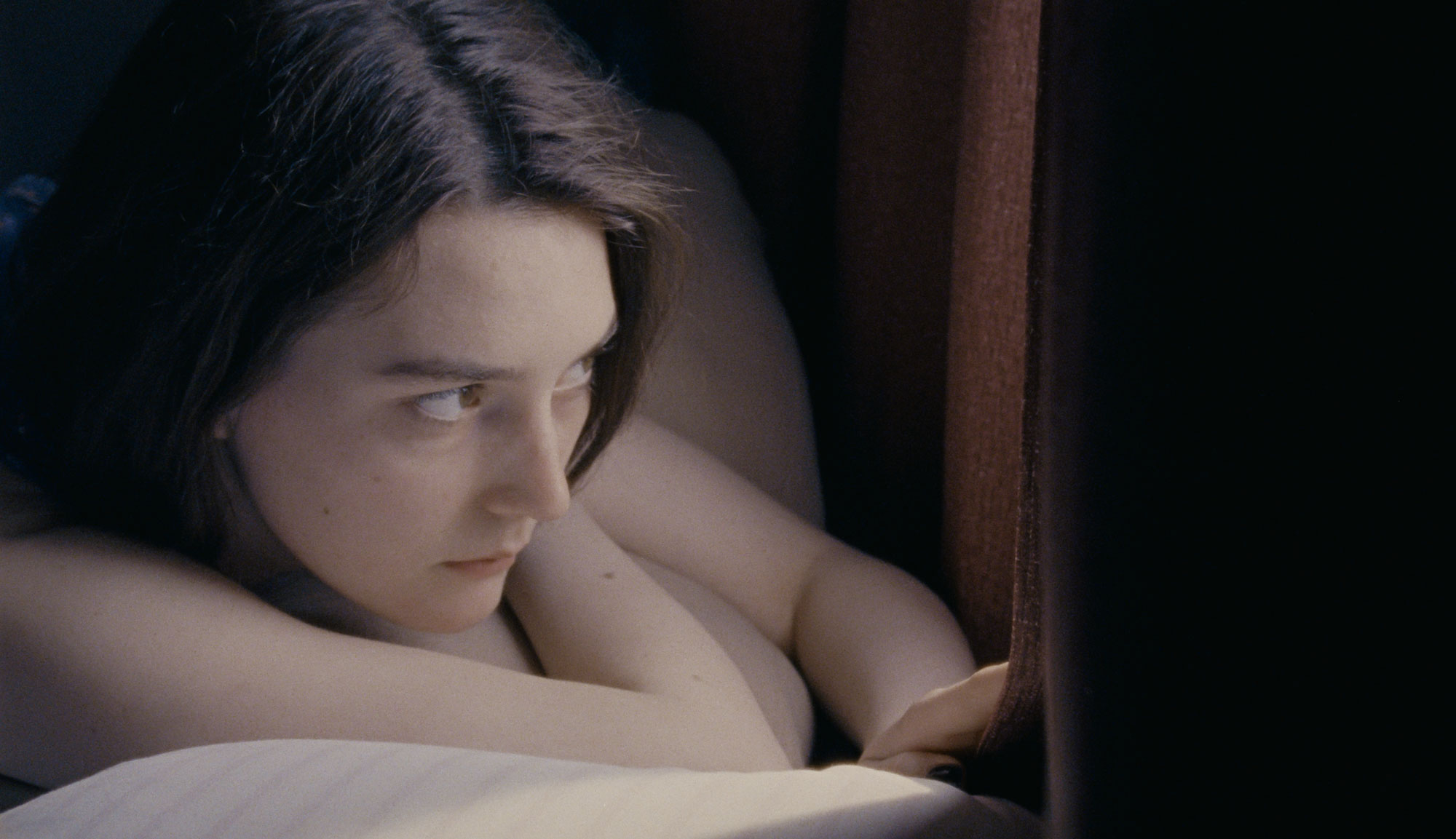
4. “MANGROVE“
Honestly, any of Steve McQueen’s five “Small Axe” films could have been an option to make this list, but the best of the anthology is the first — a searing, two-hour look at the trial of the Mangrove 9 that’s split into two disparate parts: the first chronicling the rise of the Mangrove restaurant in west London, and the second following the trial that resulted from a riot protesting terrible police malfeasance. It’s hard not to compare “Mangrove” to “The Trial of the Chicago 7,” Aaron Sorkin’s far more mainstream look at a trial in the wake of police violence, but there’s no question that McQueen is the more talented writer and director. With an incredible trio of headlining performances from Shaun Parkes, Malachi Kirby and Letitia Wright, “Mangrove” is captivating in part for the time that it takes to establish the restaurant and its community before heading to trial. It’s a long film because of this, but the payoffs are undeniable, and when it shifts to the court case halfway through, McQueen’s penchant for long, unbroken takes pays dividends. Many films from 2020 seem particularly well-suited to capture the zeitgeist in the wake of George Floyd’s murder, but “Mangrove,” with its hyper focus on the random and callous nature of police brutality targeting a group of innocents whose only crime was trying to live and breathe in a world pitted against them, is both the most timely and most powerful of the lot. If there was any doubt that Steve McQueen is among the very best filmmakers in the world today, “Mangrove” puts that doubt to emphatic rest.
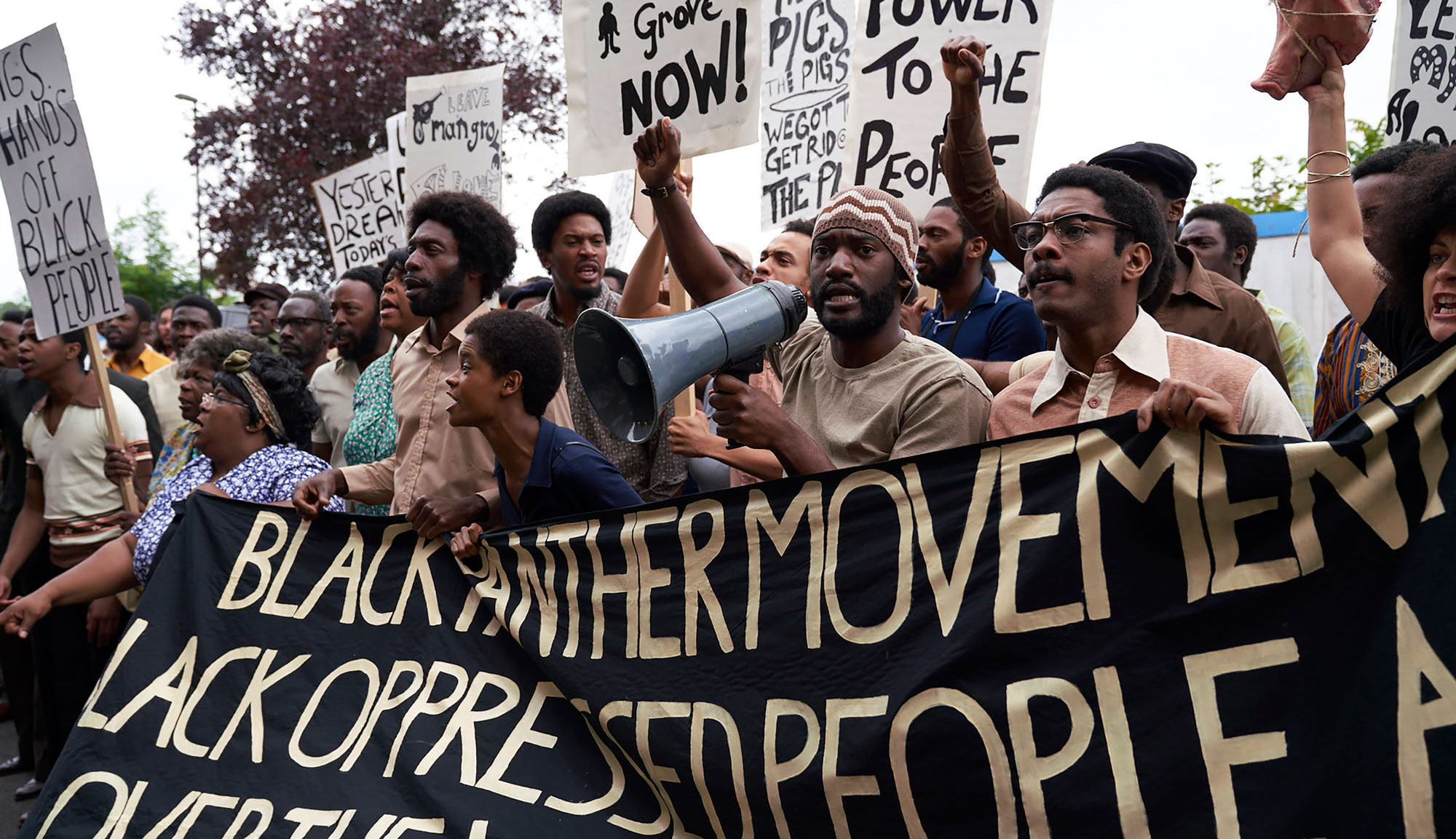
3. “BABYTEETH“
I honestly didn’t see “Babyteeth” coming. Those in the critic game are used to the process of being inundated with movies and screeners in the final month of the year, resulting in a mad dash to watch as much as possible before you’re expected to submit year-end voting or top 10 lists. This usually results in the experience of having a pretty set list and assuming things won’t change, leading to the inevitable surprise that knocks everything out of whack. “Babyteeth” was that surprise for me, an IFC release from over the summer that came and went with little notice or fanfare. Starring Eliza Scanlen of “Little Women” and “Sharp Objects” fame, “Babyteeth” tells the story of a girl with a terminal medical condition who feels trapped in her own home until she falls in with a skeezy drug dealer who gives her a little taste of the freedom of rebellion. The family dynamics here are so well defined, which shouldn’t be a shock when actors of the caliber of Scanlen, Ben Mendelsohn and Essie Davis are the ones providing them. In many ways, “Babyteeth” can be the sort of movie that infuriates you, watching as this loving, talented child is seduced by the dark and seedy side of life, but the sense of joy and life she starts to feel is so undeniable that you can’t help but go along with it even if it seems destined for tragedy in the end. And it’s safe to say that “Babyteeth” doesn’t have a happy ending, but it’s so well-realized and empathetic that there’s a sense of catharsis in the finality of it all.

2. “WOLFWALKERS“
Cartoon Saloon has long been lurking in the shadows of the animation world, constantly putting out excellent and visually gorgeous films that haven’t been able to break into a format dominated by Disney, Pixar and Illumination. The studio’s previous three films (“The Secret of Kells,” “Song of the Sea” and “The Breadwinner”) were all critical successes, but regardless of their quality, “Wolfwalkers” feels like a major step forward from both a narrative and animation perspective. Each movie has taken a slightly different approach on a house style — heavy on hand-drawn animation with a painterly, watercolor quality — and “Wolfwalkers” takes that style to new heights, heavily utilizing pencil sketching to create a powerful sense of movement. It’s a shrewd decision, as “Wolfwalkers” is an undeniably kinetic film, filled to the brim with wolves bounding through the forest as men hunt them down in a misguided attempt to control their territory. The true story is obviously far more complicated — it’s about the blindness of prejudice and how it can cause even good people to do the wrong thing. In a lot of ways, “Wolfwalkers” feels like a throwback to a bygone era, not just for the hand-drawn animation but also the style and substance of its storytelling. In a world dominated by the same sorts of movies being made over and over again, “Wolfwalkers” stands out amongst the pack as not only the best animated film of the year but one of the best films overall.

1. “DA 5 BLOODS“
Of all the films I watched in 2020, none exhilarated me quite like Spike Lee’s “Da 5 Bloods,” a rather unconventional stab at your standard Vietnam war movie. Lee is an undeniably spirited director in any project he takes on, and things are no different here, especially with its opening montage looking at Vietnam from the Black American perspective. Existing at the intersection of “Three Kings” and “Apocalypse Now,” the story follows four old vets returning to Nam to find the stolen gold they buried during the war. It’s a story about the brotherhood formed in the heat of battle as much as one about the Black experience during the war and after. It’s also one of the two films this year to feature the dearly departed Chadwick Boseman, playing the leader of the group who didn’t make it out the other side. Boseman’s scenes are a treat, as they so often are with such a talented actor, and Lee’s decision to simply have his present-day cast play themselves in the flashbacks is both a fun conceit and a stroke of genius, comfortably avoiding having to recast the younger versions or attempt some sort of de-aging. It’s also a great way to ingratiate the audience to the core team, played by Delroy Lindo, Clarke Peters, Isiah Whitlock Jr. and Norm Lewis. Add in Jonathan Majors as Lindo’s son and you have one of the best ensembles of any movie this year. “Da 5 Bloods” is the sort of film that best takes advantage of Netflix’s penchant to throw money at famous directors, as it’s hard to imagine a major studio would have ponied up the time or cash to make a movie like this a reality. It would have been great to see on the big screen, but its existence at all is the sort of treat everyone can enjoy.
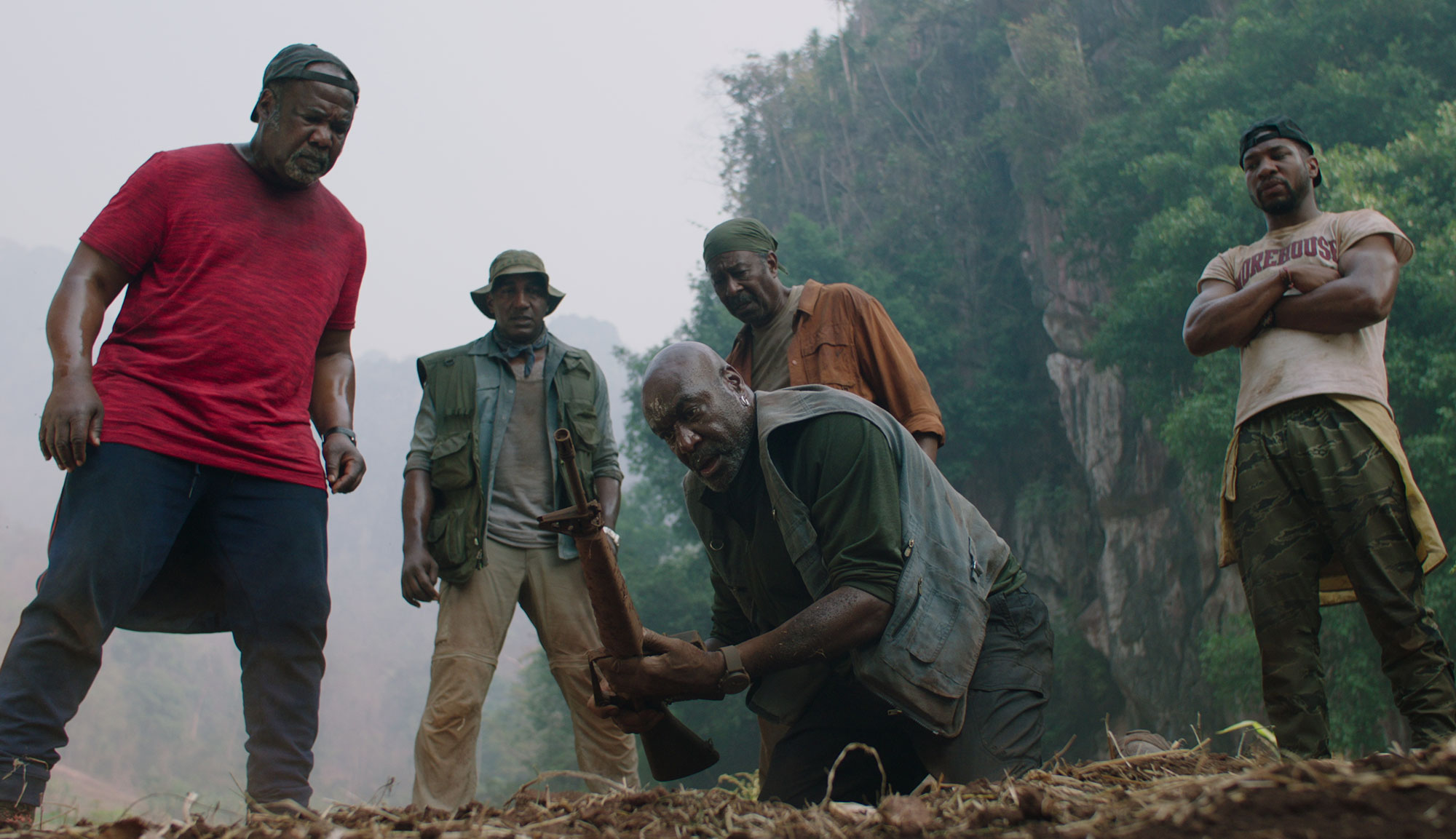
Check out Rob Dean’s 2020 Year-End Movie Review as well for Rob’s picks.


